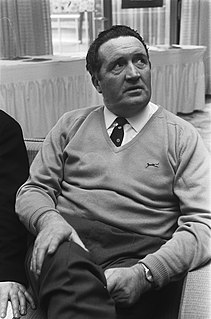A Quote by Stephen Jay Gould
We may need simple and heroic legends for that peculiar genre of literature known as the textbook. But historians must also labor to rescue human beings from their legends in science if only so that we may understand the process of scientific thought aright.
Related Quotes
Textbook science is beautiful! Textbook science is comprehensible, unlike mere fascinating words that can never be truly beautiful. Elementary science textbooks describe simple theories, and simplicity is the core of scientific beauty. Fascinating words have no power, nor yet any meaning, without the math.
Most programs are not write-once. They are reworked and rewritten again and again in their lived. Bugs must be debugged. Changing requirements and the need for increased functionality mean the program itself may be modified on an ongoing basis. During this process, human beings must be able to read and understand the original code. It is therefore more important by far for humans to be able to understand the program than it is for the computer.
Somehow super power and hero are so synonymous that they get combined into one word, 'superhero,' whereas I'm kind of more interested in separating those two ideas out. You have characters with super powers who may or may not be heroic, because human beings aren't all heroic. I tend to be drawn to antiheros.
The child in me could not die as it should have died, because according too legends it must find its father again. The old legends knew, perhaps, that in absence the father becomes glorified, deified, eroticized, and this outrage against God the Father has to be atoned for. The human father has to be confronted and recognized as human, as man who created a child and then, by his absence, left the child fatherless and then Godless.
It was just as the 1914 War burst on me that I made the discovery that 'legends' depend on the language to which they belong; but a living language depends equally on the 'legends' which it conveys by tradition. ... Volapuk, Esperanto, Ido, Novial, &c &c are dead, far deader than ancient unused languages, because their authors never invented any Esperanto legends.
A critic may reject some miracle stories as legendary, and not others, with no inconsistency at all for the simple reason that even if one holds miracles to be possible, one need not hold legends to be impossible! There are other factors, literary and historiographical ones, that might lead a critic to conclude that even though miracles can happen, it does not appear that in this or that case they did.
It surely can be no offence to state, that the progress of science has led to new views, and that the consequences that can be deduced from the knowledge of a hundred facts may be very different from those deducible from five. It is also possible that the facts first known may be the exceptions to a rule and not the rule itself, and generalisations from these first-known facts, though useful at the time, may be highly mischievous, and impede the progress of the science if retained when it has made some advance.



































